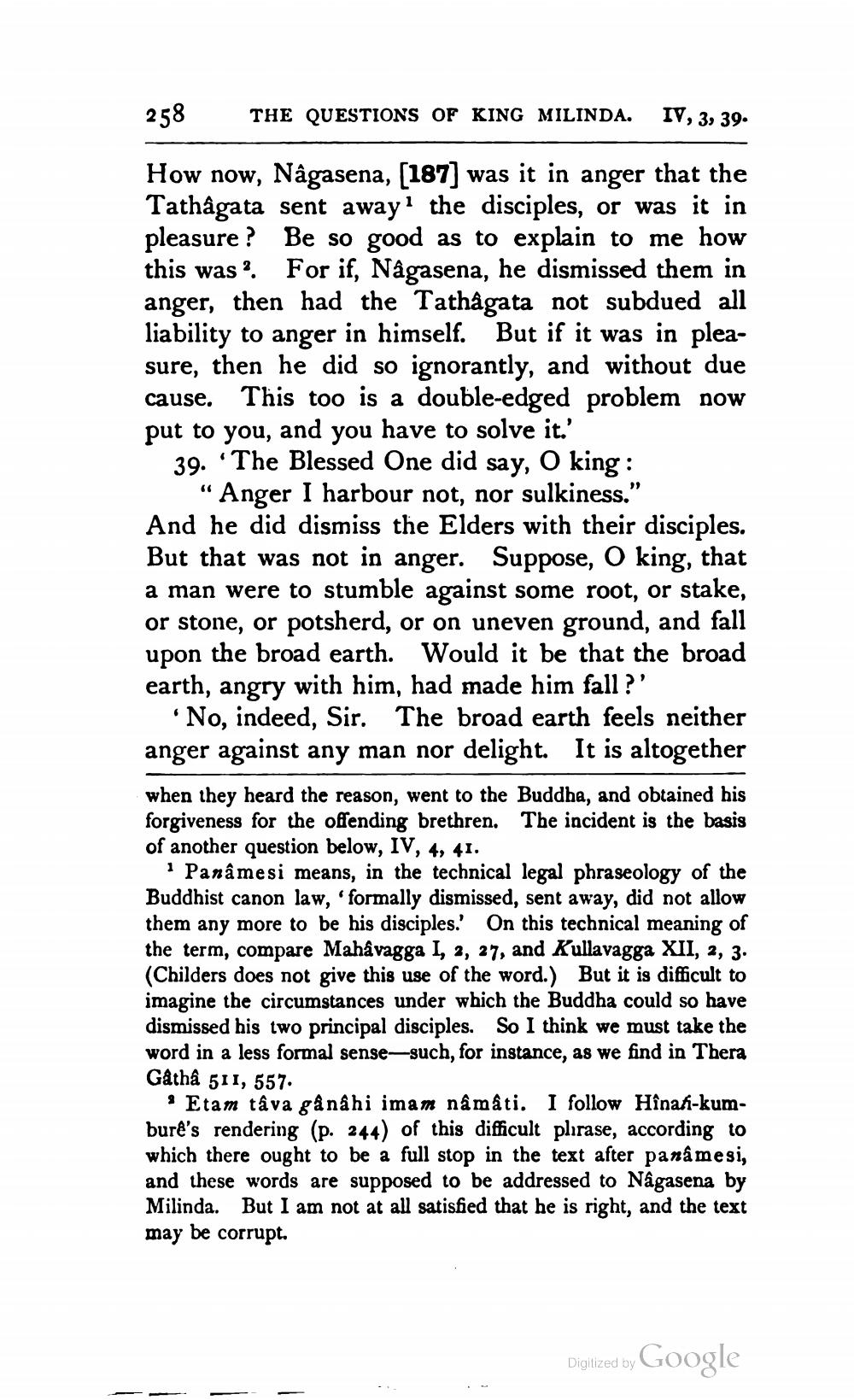________________
258
THE QUESTIONS OF KING MILINDA.
IV, 3, 39.
How now, Nâgasena, [187] was it in anger that the Tathagata sent away' the disciples, or was it in pleasure ? Be so good as to explain to me how this was? For if, Nagasena, he dismissed them in anger, then had the Tathagata not subdued all liability to anger in himself. But if it was in pleasure, then he did so ignorantly, and without due cause. This too is a double-edged problem now put to you, and you have to solve it.' 39. 'The Blessed One did say, O king :
“Anger I harbour not, nor sulkiness." And he did dismiss the Elders with their disciples. But that was not in anger. Suppose, O king, that a man were to stumble against some root, or stake, or stone, or potsherd, or on uneven ground, and fall upon the broad earth. Would it be that the broad earth, angry with him, had made him fall?''
No, indeed, Sir. The broad earth feels neither anger against any man nor delight. It is altogether when they heard the reason, went to the Buddha, and obtained his forgiveness for the offending brethren. The incident is the basis of another question below, IV, 4, 41.
* Panâmesi means, in the technical legal phraseology of the Buddhist canon law, 'formally dismissed, sent away, did not allow them any more to be his disciples. On this technical meaning of the term, compare Mahâvagga 1, 2, 27, and Kullavagga XII, 2, 3. (Childers does not give this use of the word.) But it is difficult to imagine the circumstances under which the Buddha could so have dismissed his two principal disciples. So I think we must take the word in a less formal sense-such, for instance, as we find in Thera Gatha 5II, 557:
* Etam tâva gânâhi imam nâmâti. I follow Hînafi-kumbure's rendering (p. 244) of this difficult plırase, according to which there ought to be a full stop in the text after panâmesi, and these words are supposed to be addressed to Nagasena by Milinda. But I am not at all satisfied that he is right, and the text may be corrupt.
Diglized by Google




